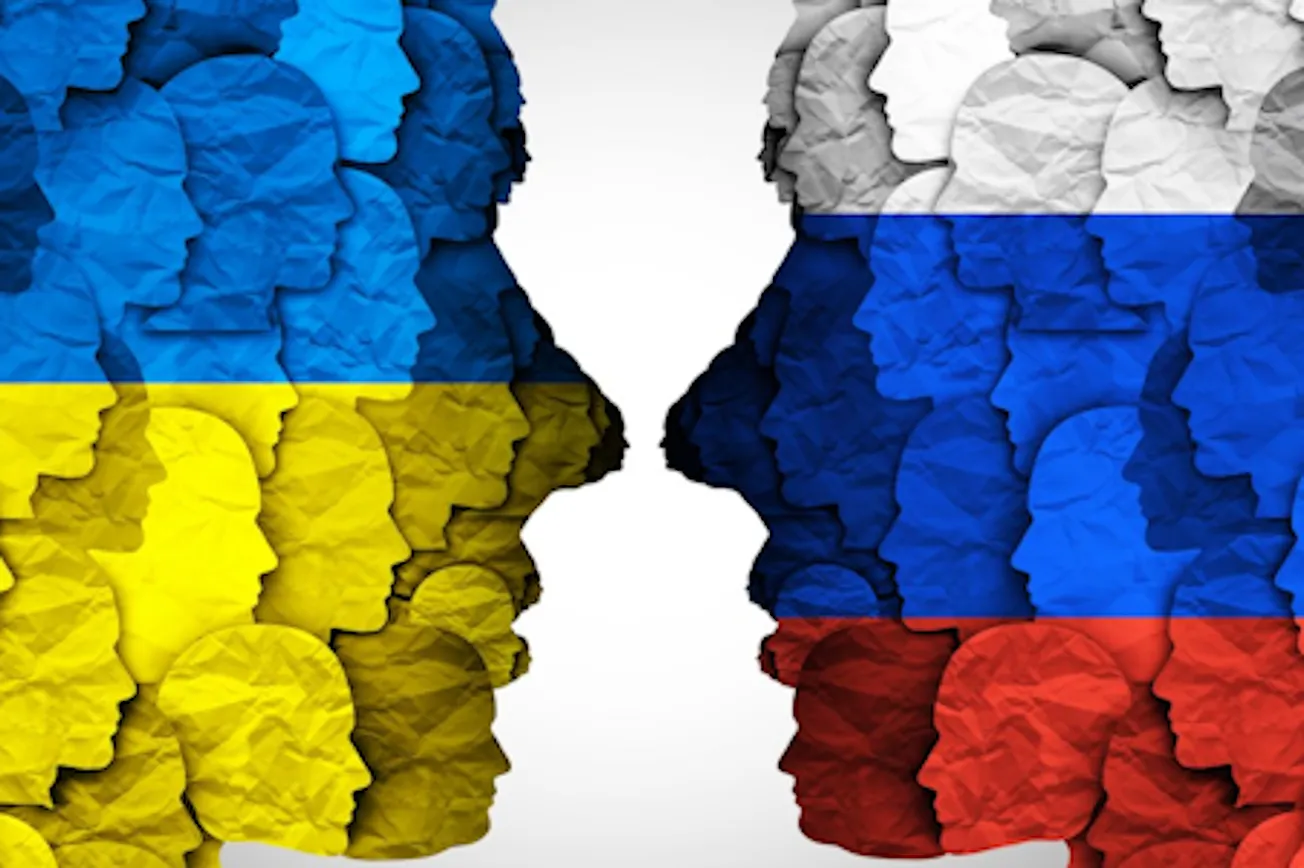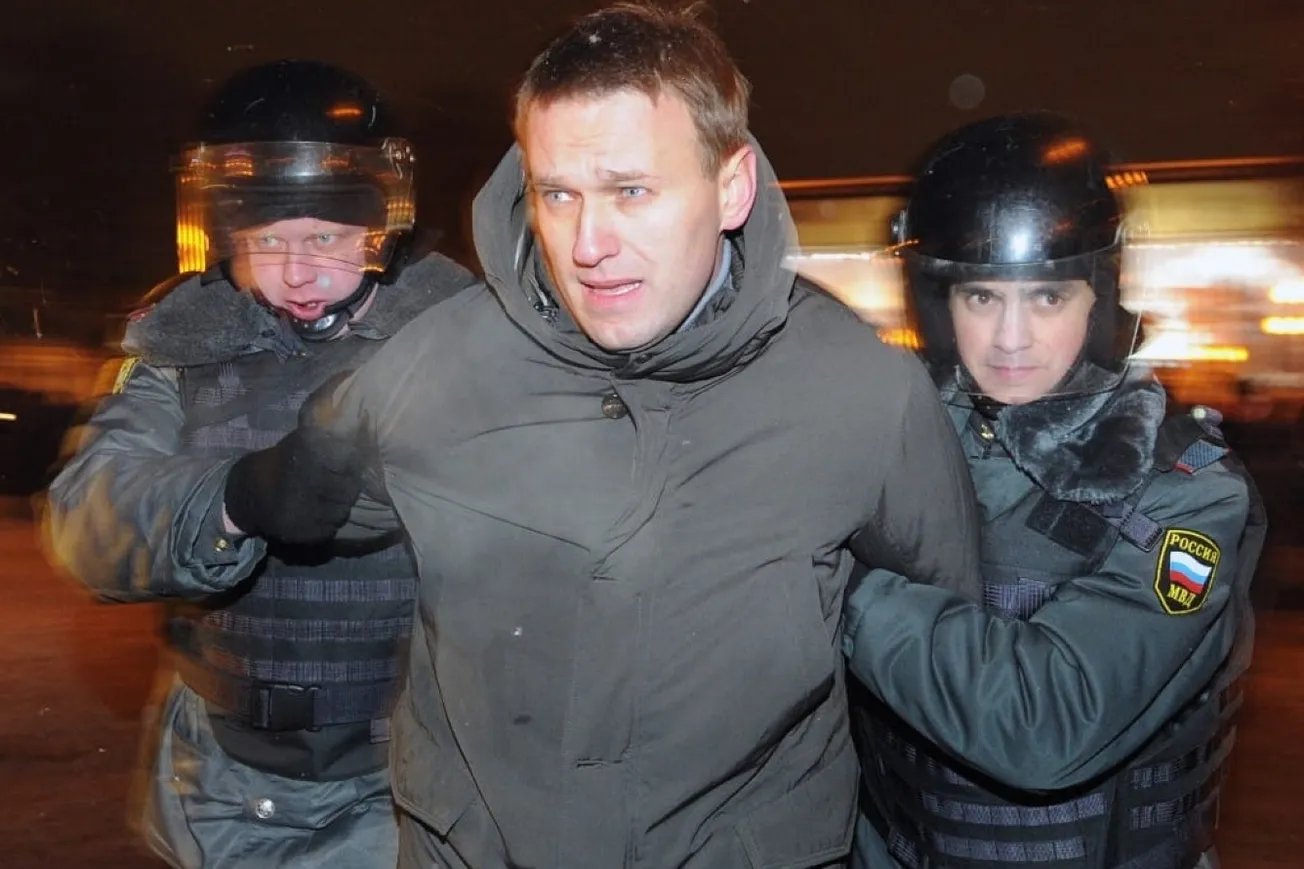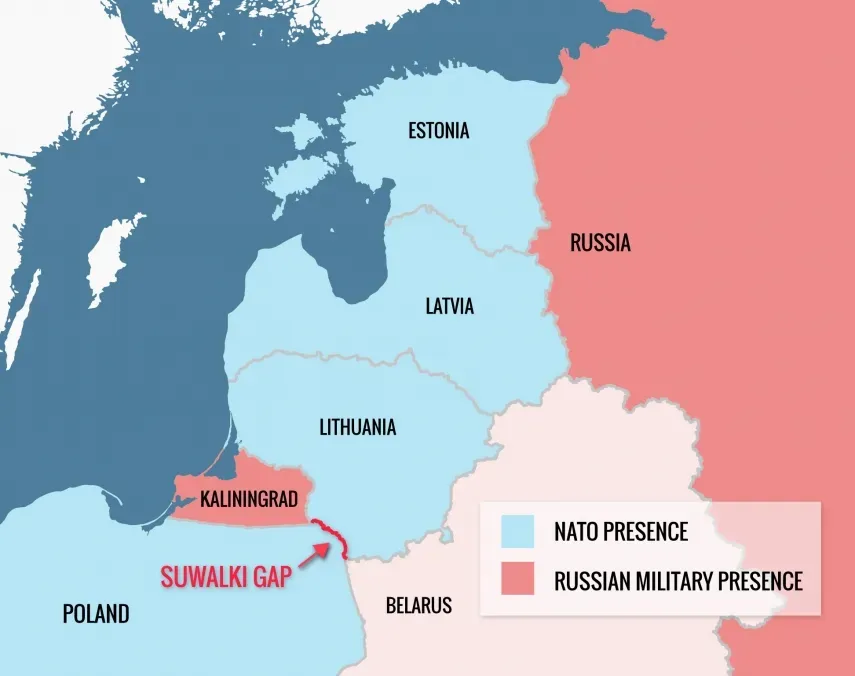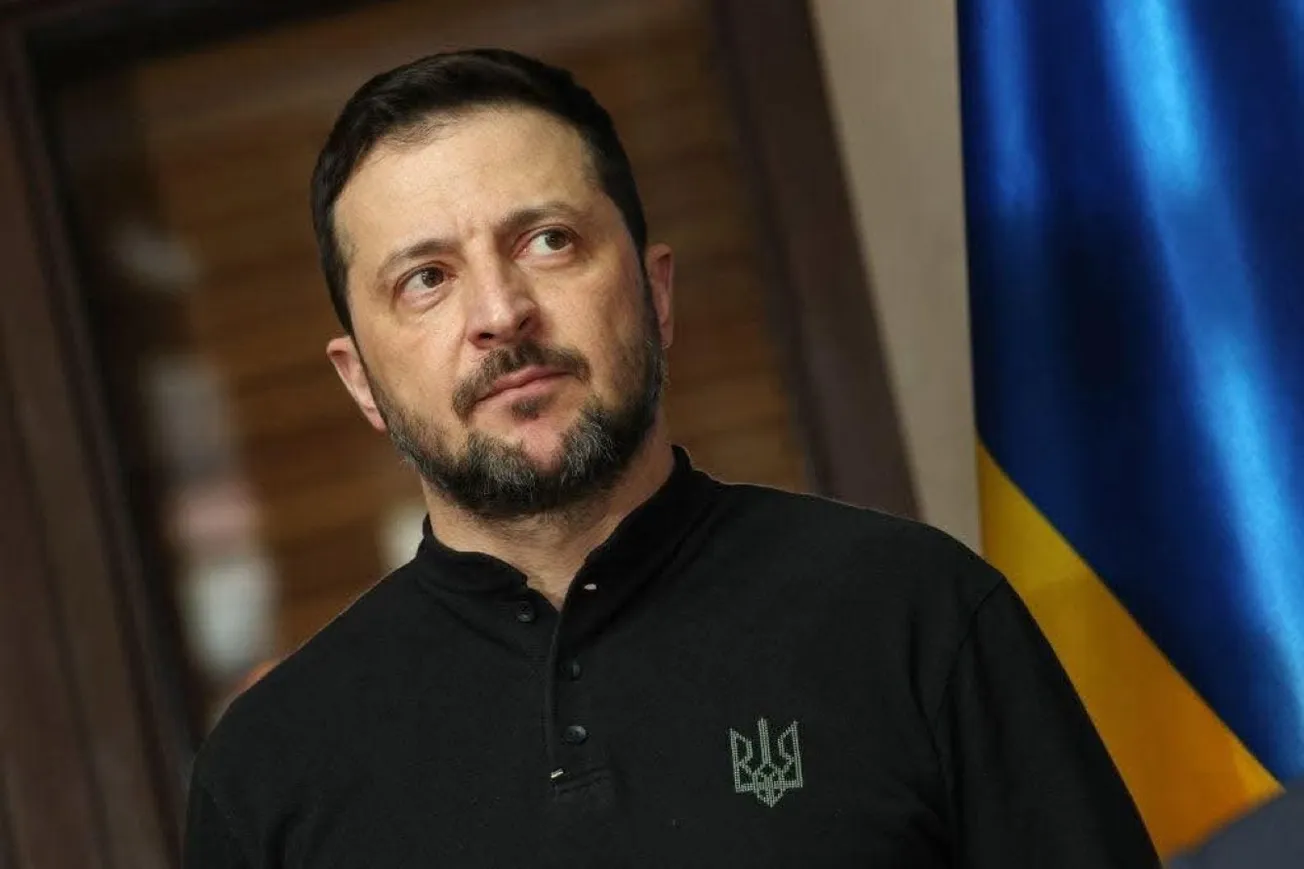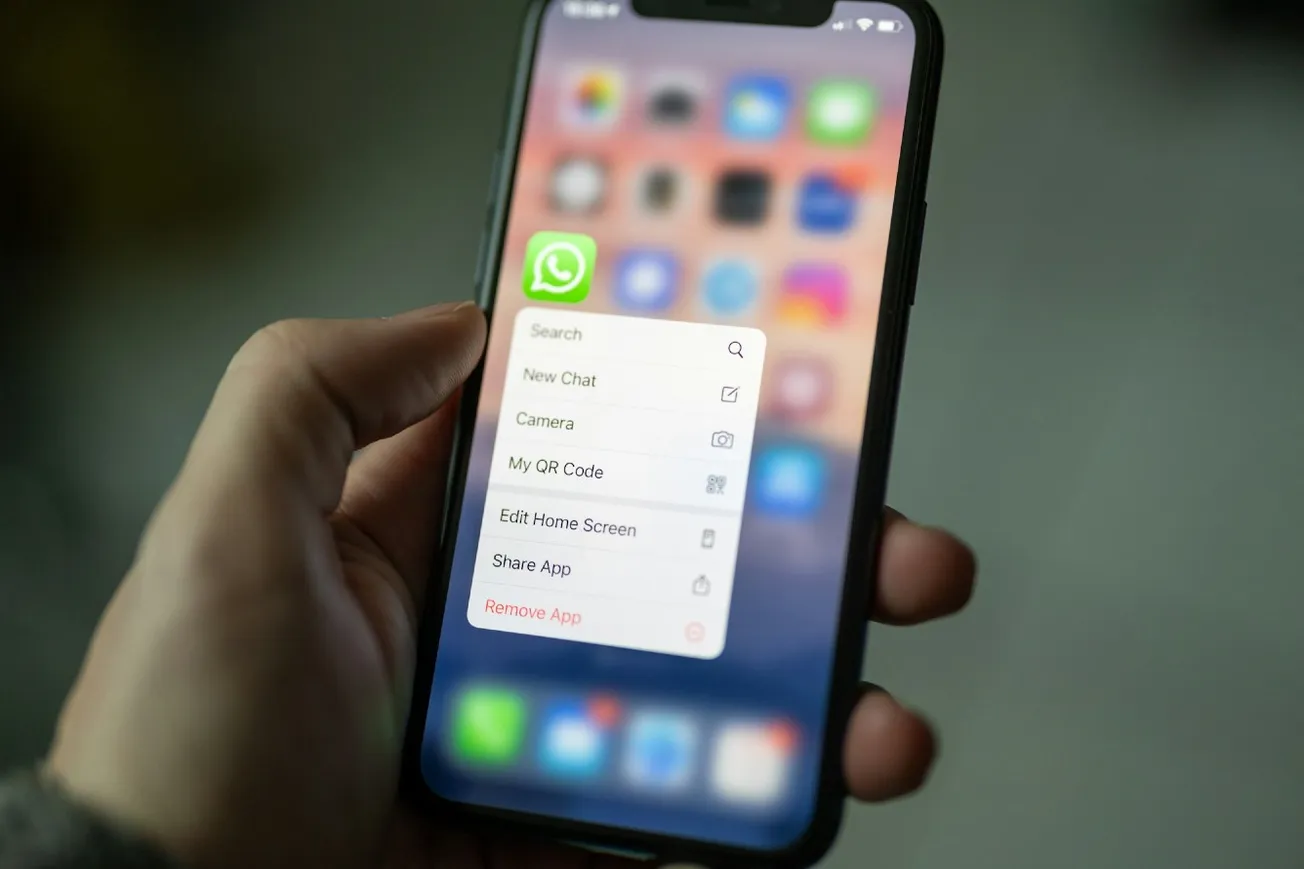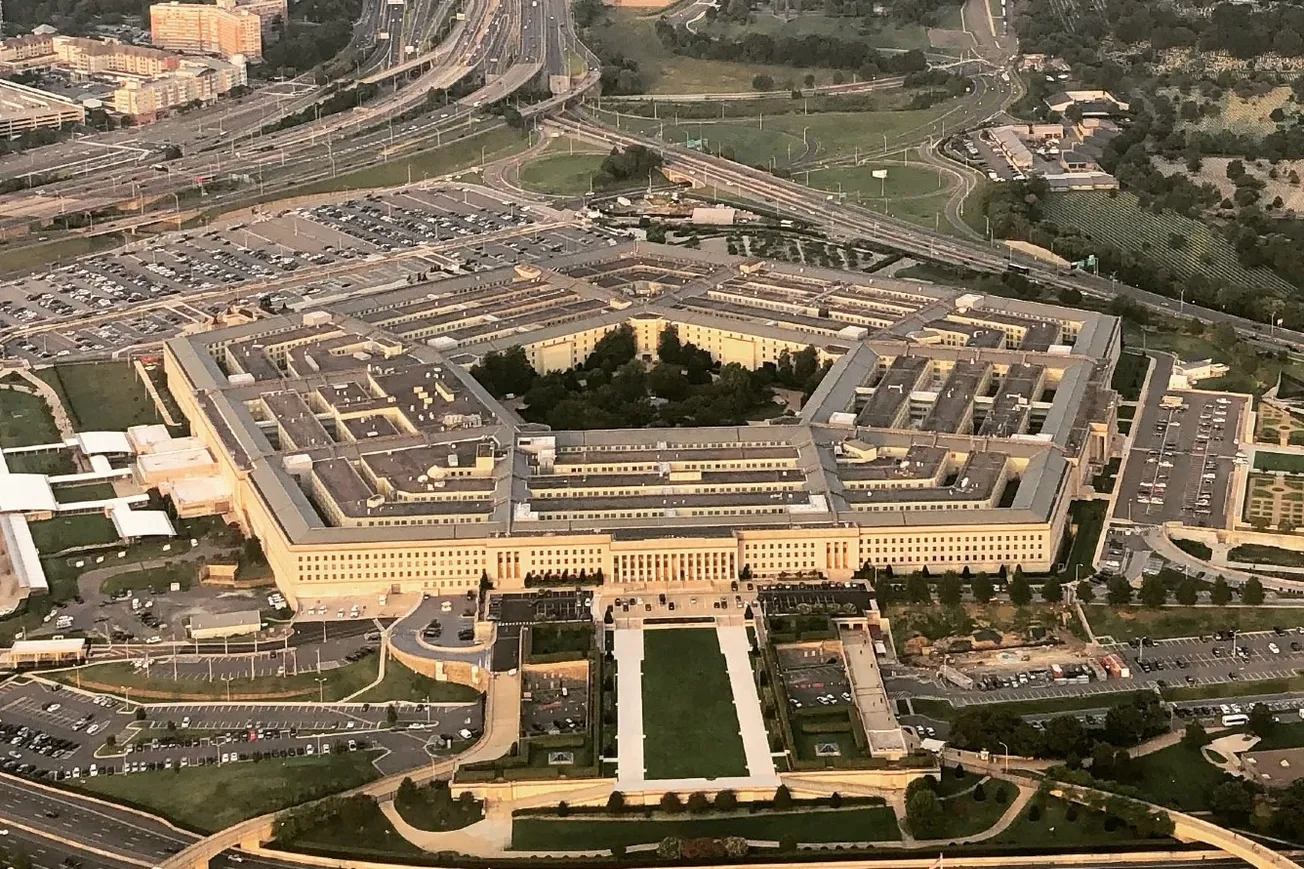Russian President Vladimir Putin surprised journalists this week when he insisted that any long-term peace deal with Ukraine could only be signed with a new Ukrainian leader in agreement with the United States, China, India, Brazil, South Africa, and yes, North Korea. Putin was acting like the legendary lawyer in Shakespeare's The Merchant of Venice, who upholds the legality of Shylock's bond to extract a pound of flesh if the debtor defaults, but can only do so without spilling blood, a practical impossibility.
It was a classic "give an inch, take a mile" move by Putin, hoping to push hard on President Trump, who is genuinely interested in ending the Russia-Ukraine war. One never knows if Trump and Putin had privately agreed beforehand that Putin would make these demands to pressure Zelenskyy to come to the peace table. If, however, Putin were speaking on his own, his comments would indicate sheer greed, exploiting the sensitive situation on the ground for his own opportunism
Zelenskyy should have been sullen in defeat after his disastrous White House meeting. Yet, he has developed new wings and strength, shifting his demands to Europe and browbeating them to do what America has been tamely doing for the last three years. The so-called Coalition of the Willing, led by the UK, France, and Germany, along with European Union officials, has been steadfast in its public support of Ukraine, loaded with rhetoric and communiqué. In Paris, Zelenskyy was treated like a rockstar, with lights on the Eiffel Tower turning to Ukrainian colors. But then, talk is cheap.
The gulf between the various stakeholders is so vast that reaching a framework seems unlikely unless something changes drastically.
Ukraine: Ukraine seeks a durable peace that ensures its sovereignty, territorial integrity, and security against future Russian aggression. It has shown a willingness to engage in ceasefire talks, accepting a U.S.-proposed 30-day interim ceasefire on March 11, contingent on Russian reciprocity. However, Kyiv resists concessions that compromise its independence or restrict NATO aspirations, with President Zelenskyy rejecting deals that "sell out" the state. Ukraine also pushes for European and U.S. security guarantees, including NATO membership, to deter Russia in the long term and is wary of being sidelined in U.S.-Russia bilateral negotiations.
Europe: European nations, particularly NATO allies like the UK, France, and Germany, advocate for a strong, united front to support Ukraine and pressure Russia. They emphasize Russia ending its aggression and withdrawing forces, as seen in their backing of UN resolutions condemning Moscow. Europe is increasing military and financial aid to Ukraine—e.g., the UK's 100-year partnership and billions in new spending—to fill gaps left by shifting U.S. policy. Leaders like Macron and Starmer propose robust post-conflict security, potentially with European troops, to ensure a lasting peace, reflecting a growing willingness to take a leadership role amid U.S. disengagement. However, these countries are facing severe economic challenges, and it is not clear whether their citizens would support massive injections of military spending to help Ukraine at the cost of domestic priorities.
United States: Under President Trump, the U.S. has shifted toward mediating a swift end to the conflict, prioritizing peace over prolonged support for Ukraine. It proposed a 30-day ceasefire in Jeddah on March 11 and resumed military aid after a pause, using leverage to push both sides to negotiate. However, the U.S. has softened its stance on Russia, avoiding blame in UN votes and engaging Moscow directly (Rubio-Lavrov talks in Saudi Arabia), raising concerns among allies about a deal favoring Russia. The U.S. also pursues a transactional minerals deal with Ukraine, linking economic investment to stability rather than firm security commitments.
Russia: Russia aims to secure a neutral, weakened Ukraine, free of foreign troops and NATO influence, while retaining control over occupied territories. Putin has floated a temporary administration for Ukraine to oversee elections and peace accords, but he rejects ceasefires without Ukrainian capitulation, as seen in his dismissal of the Jeddah plan. Moscow seeks normalized ties with the U.S., including sanctions relief, and leverages its battlefield attrition advantage to demand concessions, maintaining that NATO expansion and Western presence in Ukraine are non-negotiable threats to its security.
American Public Opinion: According to the March TIPP Poll, Americans are cautiously optimistic that the new administration can resolve the Russia-Ukraine conflict, with Republican voters especially hopeful. A 42% plurality says U.S. interests should lead peace negotiations, signaling a shift away from idealistic globalism toward strategic realism. And if Trump ends the war, 61% of Republicans believe he deserves the Nobel Peace Prize. Public sentiment is evolving: less about taking sides and more about results.
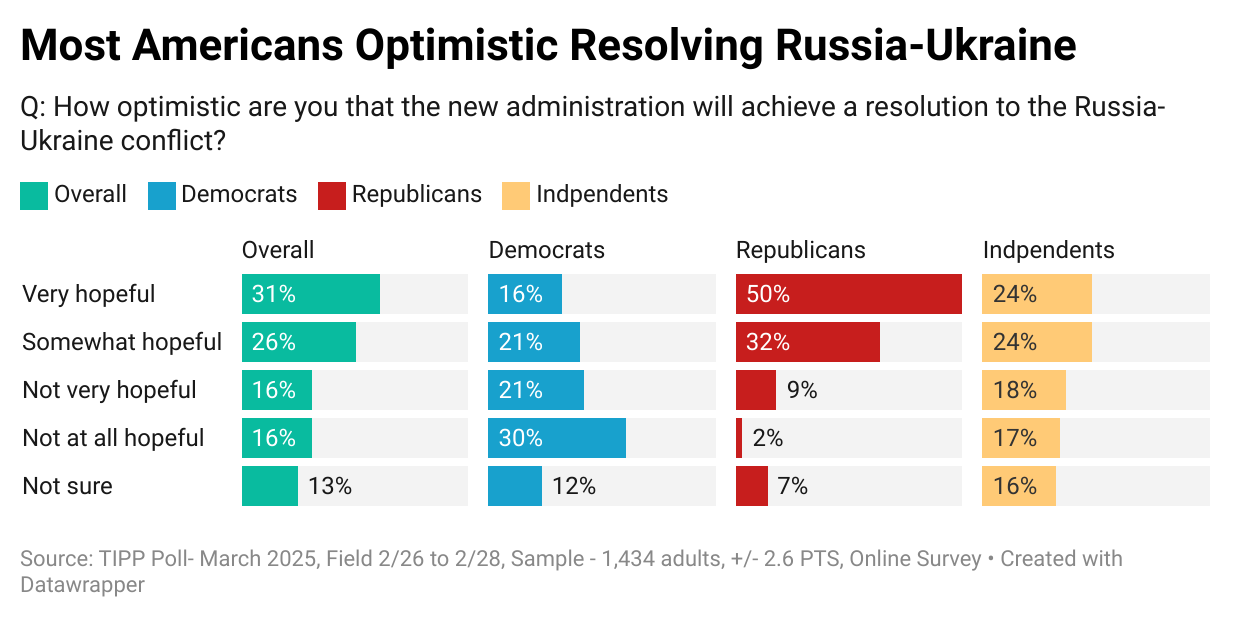
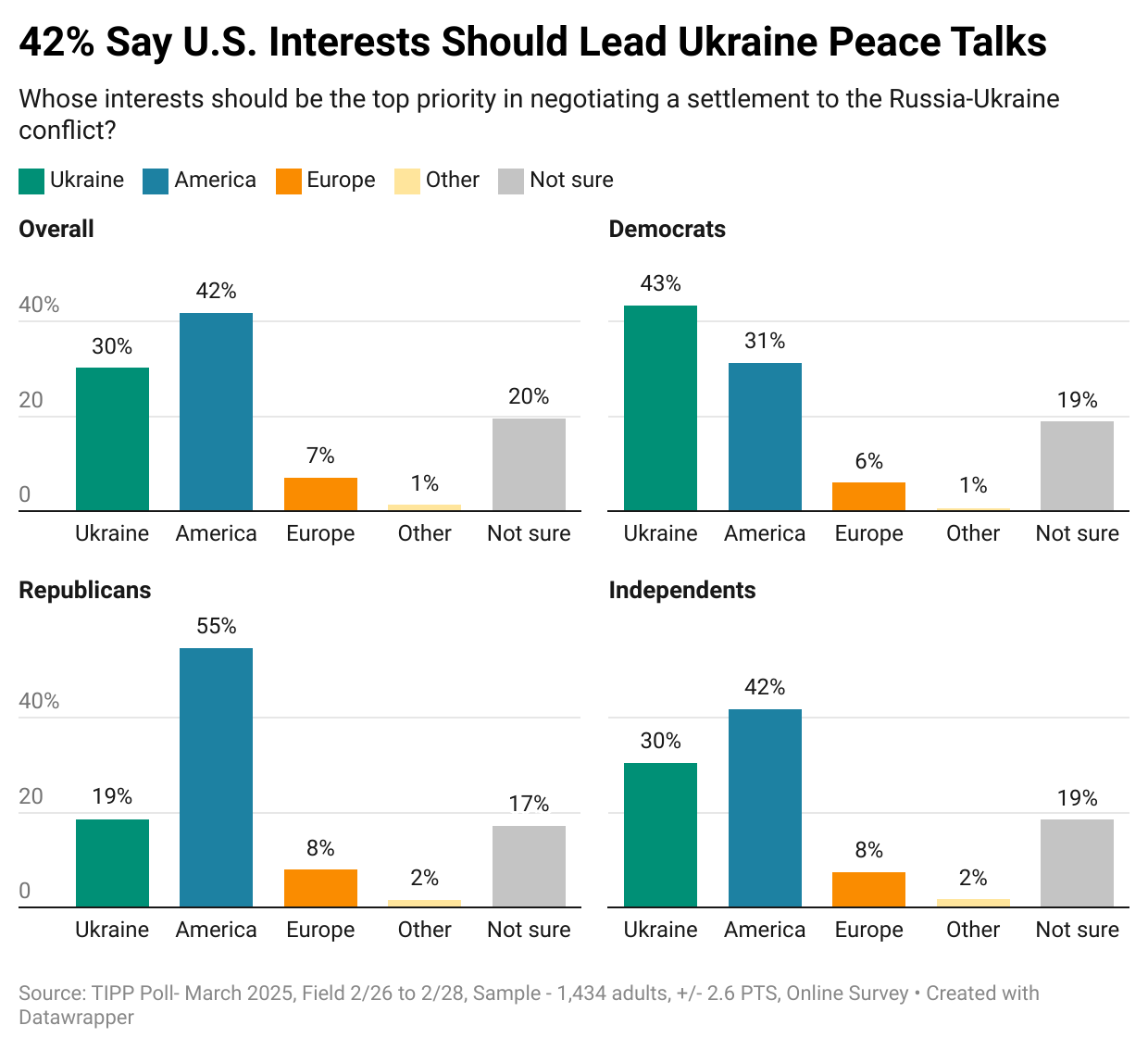
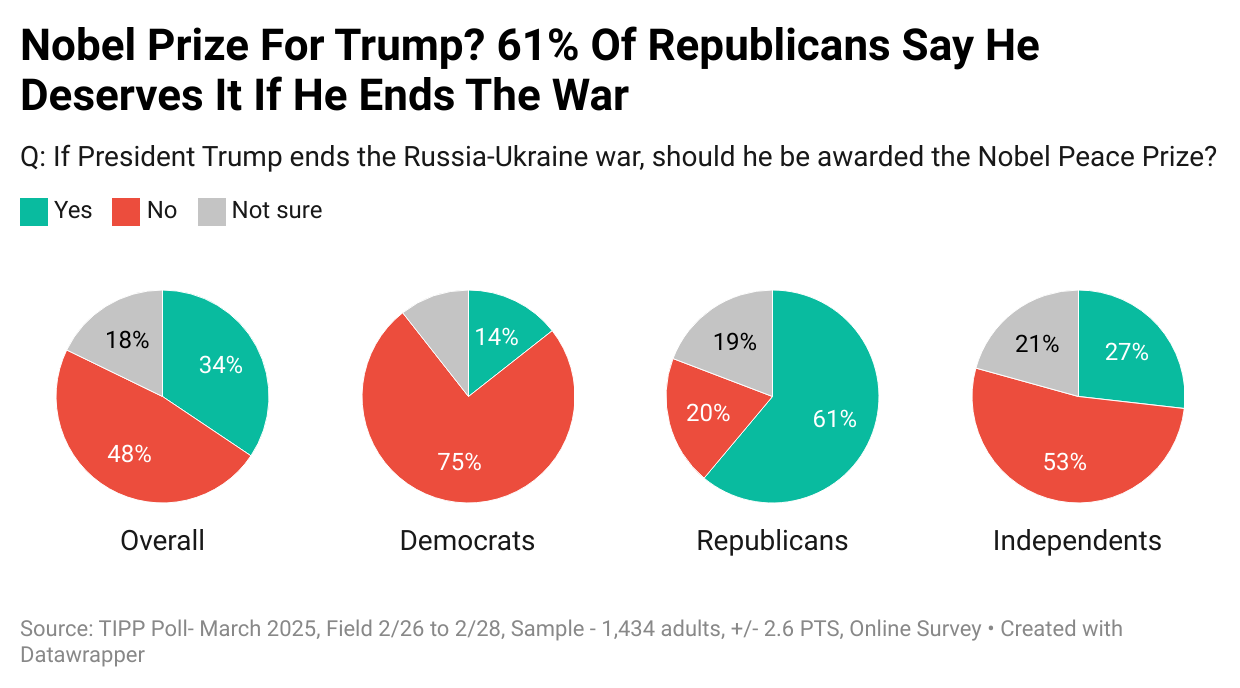
And herein lies the most significant risk. If the warring parties and Europe lose President Trump's attention, the conflict can turn ugly and become unpredictable, with no end in sight. Astonishingly, they do not grasp this simple truth.
In a way, Trump has already moved on. He is busy defending his administration's actions regarding DOGE and deportations in the courts. On April 2, the world will wake up to an untested tariff regime as Trump imposes 25% tariffs on Europe and Canada, with additional tariffs levied on a reciprocal basis. The administration is at war with Houthi rebels in the Red Sea and is defending its actions in the recent Signal-Gate episode.
To his credit, Trump continues to expend political capital and resources to end the war. Steve Witkoff, Donald Trump's special envoy, met with Putin on March 13 to discuss a proposed 30-day ceasefire. The Secretary of State has spoken with Russian counterpart Sergey Lavrov three times—twice by phone and once in person in Riyadh, Saudi Arabia, for a high-level discussion lasting about four and a half hours. It followed a Trump-Putin call on February 12 and marked a shift toward renewed dialogue, though Ukraine and European allies were notably absent.
It is becoming clear that the warring parties are not as committed to peace as Trump is. On the broader battlefield, posts on X from last week (March 26) noted Ukrainian forces pushing back Russian troops near Andriivka in the Novopavlivka sector, while Russian advances were reported near Pyatykhatky and Maly Shcherbaky in the Orikhiv sector, with a net loss of ten square km of Ukrainian-held territory in a single day. The New York Times reported that Ukrainian incursions targeted the Belgorod region even as ceasefire talks continue.
President Trump is the only person, as the leader of the free world, who can help end the Russia-Ukraine war. It is a pity that other world leaders do not appreciate this fact.
TIPP Picks
Selected articles from tippinsights.com and more
Top 10 Most-Read Articles This Week
1. DOJ Explores Criminal Charges Against Ousted USIP Mutineers—Thomas English, DCNF
2. Death Threats Against Musk Once Again Shows How Much The Left Values Science—Larry Elder, DCNF
3. Washington Rejects Putin’s Proposal for UN-Controlled Ukraine—TIPP Staff, TIPP Insights
4. The Media’s Kamikaze Death Spiral: Lies, Hubris, And A Profession In Ruins—Editorial Board, TIPP Insights
5. How AP’s Woke Style Guide Undermines Legal Immigrants—Editorial Board, TIPP Insights
6. What Trump’s Tariff Critics Are Getting Wrong—Lori Wallach, Project Syndicate
7. Signal: Mike Waltz Must Resign Immediately—Editorial Board, TIPP Insights
8. The High Price Of War With Iran: $10 Gas And The Collapse Of The US Economy—Dennis J. Kucinich, Ron Paul Institute for Peace and Prosperity
9. Shed No Tears For Fired Federal Workers—Editorial Board, Issues & Insights
10. Does The US Military Even Know Why It’s Bombing Yemen?—Kelley B. Vlahos, Ron Paul Institute for Peace and Prosperity

